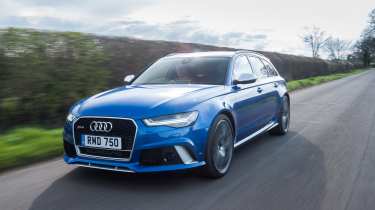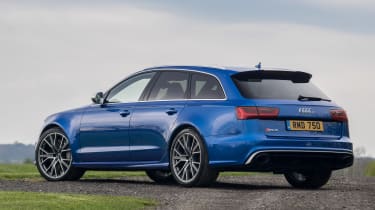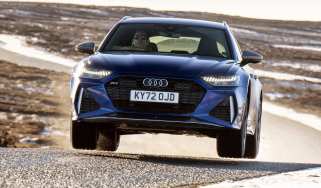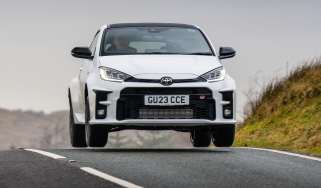Audi RS6 Avant (C7, 2013-2019) review – a family car with supercar speed
Audi’s C7-generation RS6 may lack ultimate involvement, but it’s still a crushingly effective and desirable super-estate
Audi kick-started the super-estate sector with the RS2, and with models like the B7 RS4 and V10-engined C6 RS6, it built an unrivalled reputation as a maker of formidably fast, usable all-weather family cars. The C7 RS6 that arrived in 2013 was a high point, transitioning from ten cylinders to eight but delivering a broader spread of talents than its forebears.
This car may have had a smaller and marginally less powerful engine than the V10 C6, but it brought an entirely new level of performance to the table. Its then-new 4-litre TFSI twin-turbocharged V8 was lighter than the twin-turbo V10, had more torque, and featured the likes of active engine mounts and cylinder deactivation to make it a truly impressive offering.
In its original form the C7 RS6 produced 552bhp and 516lb ft of torque. While its closest competitors from BMW and Mercedes were still rear-wheel drive, the Audi continued with the all-wheel-drive approach for which the brand is known, sending its outputs through a full-time Torsen set-up for optimum traction and predictably brisk performance. BMW had recently introduced a dual-clutch transmission in its saloon-only F10 M5 (the first turbocharged V8 version), but we had no complaints with the RS6’s sharp-shifting eight-speed torque-converter automatic.
More reviews
Though the C7 was launched over a decade ago, its potent powertrain helps it achieve an impressively modern 3.9sec 0-62mph sprint in standard form. For some contemporary context, the identically powerful F10 M5 took 4.4sec. Top speed for the Audi is an electronically limited 155mph, or 189mph on cars equipped with the optional carbon-ceramic brakes. A ‘Performance’ variant, offered from 2015, upped power to 597bhp and trimmed the 0-62mph dash to 3.7sec. Why on earth you would consider a turbo or supercharged SUV over one of these, we've no idea.
Audi RS6 (C7): in detail
- Engine, gearbox and technical highlights – This was Audi’s first application of its now ubiquitous 4-litre twin-turbo V8. There's power and torque in abundance
- Performance and 0-60 time – It was top of the class in 2013, but as rivals went all-wheel drive, so their acceleration showed up the RS6
- Ride and handling – The C7 RS6 embodied some typical Audi traits, numb front-led handling being one of them, although ride quality is impressive despite big wheels and tyres
- MPG and running costs – Anything above 20mpg is good going. Dig into the carpet and prepare to see those numbers free-fall
- Interior and tech – Superb quality, detailing and materials. Infotainment system was top-notch on launch, and is still passable today
- Design – This is where the RS6’s real desirability lies. Flared arches, big wheels and able to be specified anywhere between subtle menace and Sunday driver hot-rod
Price and buying checkpoints
Given that versions of the Volkswagen Group 4.0 TFSI can now be found in everything from the Bentley Continental GT to the Lamborghini Urus, it should come as no surprise to learn that it’s a largely reliable unit. There are very few complaints about the powertrain itself, with ordinary driving scenarios giving little to worry about. However, partly due to its use of a torque-converter transmission, the C7 RS6 comes without a launch control function, so some owners use manual brake boosting for a spirited getaway.
As you’d expect, this puts certain driveline components under extreme stress, and indeed you’ll find various videos online of RS6s snapping driveshafts. Thankfully, these aren’t particularly expensive to replace, but it’s something to note. Owners have also experienced split coolant hoses on facelifted cars (post-2015), but this is something that can be preempted with a thorough inspection before buying.
At launch, the C7 was priced from just under £80,000, with this swiftly climbing towards the six-figure mark if enough boxes were ticked. Today the classifieds are full of used examples, starting from just shy of £30,000. Given the sheer number available you can afford to be choosey and avoid those with higher mileages or which have been dubiously modified or show clear signs of abuse. Look closely and you’ll find good, unmolested cars on 60k miles or less for around £40,000.





